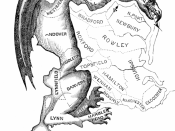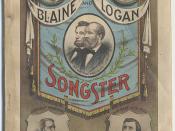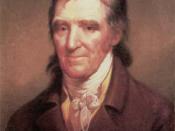George Washington himself thought it would be in America's best interest to avoid forming political parties. But even having said this Washington was already involved in the formation of one of the first political parties in America. In the beginning, before the Washington Administration, there were no parties; you were either for or against Congress and or independence. When the Constitutional Convention was called we see the first major political party split. The two parties were known as the Federalists and the Anti-Federalists. The Federalists were led by George Washington. Though he is never considered a formal member of this political party, he shared most of their views. Alexander Hamilton and James Madison were two of the first well known Federalists. The Anti-Federalists never really had an organized party, and ended up dying out as the Anti-Federalists, but almost all of its members joined up with Thomas Jefferson and became the Democratic Republican Party.
The differences in opinions that made the people split into two separate groups were, primarily the social backgrounds of the groups. The Federalist Party consisted of mostly wealthy men, many of whom were lawyers, businessmen, bankers, and merchants. These men had a lot of influence in the northern part of the United States because businesses were popular and growing in this region. The Federalists also tended to favor Britain, and British customs. When it came to the Constitution the Federalists believed in a loose interpretation of it, believing that just because something might not be physically written into the Constitution, it could still be implied. The Federalists also believed in a strong federal government. They supported having one central leader to run the whole country.
The Democratic Republicans were like the opposite side of the coin compared to the Federalists, starting with their social backgrounds. The...


